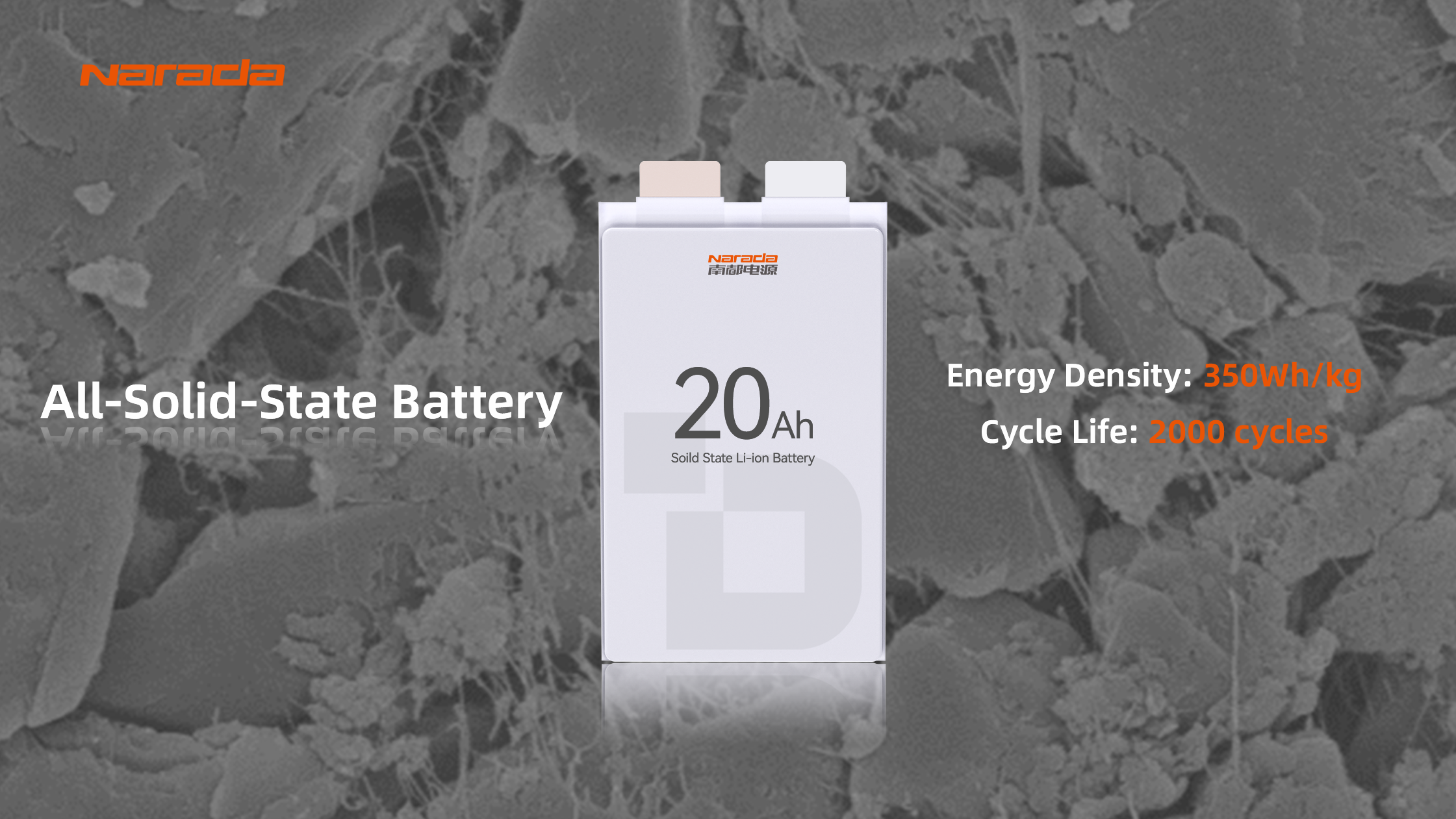Recently, Narada's Zhejiang Provincial Key R&D Program project, "Development and Industrialization of Key Materials for New Energy Vehicles – Development of Key Materials and Manufacturing Technologies for High Energy Density Solid-State Lithium-ion Batteries" (Project Number: 2021C01175), successfully passed the acceptance review.
The Zhejiang Provincial Department of Science and Technology organized a panel of experts to conduct an on-site inspection of the project’s pilot demonstration line. The experts also held a meeting to review the project’s work summary, technical summary, as well as special audit reports, testing reports, and user feedback reports.
The review panel acknowledged the project’s achievements, commending the original and high-level research conducted by the project team. They concluded that the project fulfilled the main objectives and tasks outlined in the contract and approved the project’s acceptance.

To tackle critical technical challenges in solid-state lithium batteries, such as the low ionic conductivity of solid electrolyte materials and poor interfacial compatibility, Narada initiated this key R&D project in 2020. The company also collaborated extensively with Zhejiang University on the development and application of key technologies for solid-state batteries, as well as the development and construction of specialized equipment.
The project successfully developed advanced technologies, including surface coating modifications of ternary oxide cathode materials using fast-ion conductor solid electrolytes, dry-process dense electrode forming technology, and the design and production of high ionic conductivity inorganic/organic composite solid electrolyte membranes. Two high-energy-density solid-state lithium batteries (10Ah and 20Ah) were developed, along with the establishment of a pilot demonstration line for solid-state lithium-ion battery manufacturing.
Products developed under the project have been tested by third-party agencies, and their technical indicators meet the required standards. User feedback has also been highly positive. To date, the project has resulted in 11 national invention patent applications, with 7 already granted. Additionally, 16 SCI papers have been published, reflecting a wealth of research achievements.
Moving forward, the acceptance panel encouraged Narada to summarize the project outcomes further and actively promote the industrialization of these results, driving the advancement of the solid-state battery industry.
Narada’s 20Ah solid-state battery utilizes an ultra-high nickel ternary cathode and a confined-growth silicon-carbon anode system. Through the innovative design of a “sandwich structure” electrolyte and in-situ surface film formation technology for electrodes, the battery successfully addresses the “solid-solid interface” challenge.

This battery achieves an energy density of 350Wh/kg with a cycle life of 2,000 cycles. It has passed safety performance tests such as compression and short-circuit testing, meeting national standards, and demonstrates no risk of fire or explosion. Additionally, the battery retains 93.4% of its capacity after 500 full charge-discharge cycles, and over 80% capacity retention after 2,000 cycles.
In the field of solid-state batteries, Narada not only holds core technical advantages but also actively promotes the industrialization of its results. Based on the current performance of its solid-state batteries, the company is working closely with relevant customers to advance applications in areas such as drones, robotics, low-altitude aircraft, and consumer electronics.
Recently, Narada signed a strategic cooperation agreement on solid-state batteries with Talent New Energy. Leveraging the strengths of their respective R&D platforms, both parties will collaborate on key projects, integrate their advanced technological capabilities, and jointly conduct R&D and industrialization of solid-state battery innovations. The partnership aims to drive technological innovation, application, and product iteration in solid-state batteries. Moreover, both parties will utilize their respective resources, industry expertise, and industrial advantages to coordinate along the value chain, promoting large-scale applications of solid-state batteries in energy storage and civilian sectors.
In the future, Narada will continue to develop larger-capacity and higher-density solid-state batteries. Once scaled for mass production, these batteries can be widely applied to various new energy storage products.




